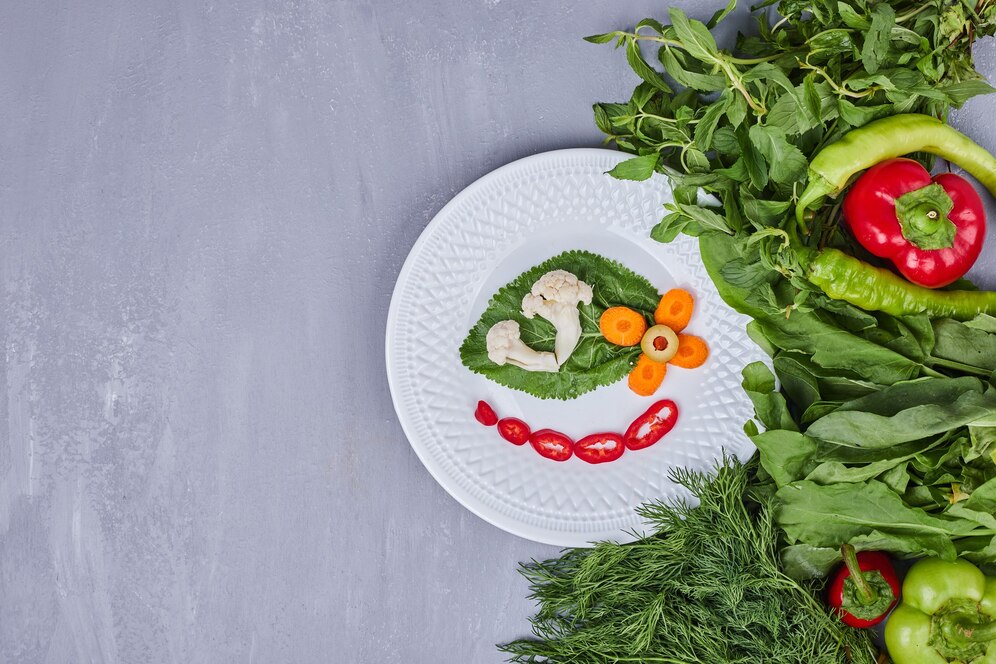In today’s fast-paced, over stimulated world, mental clarity is more essential than ever. From decision-making to memory retention and creativity, your brain’s performance directly influences your personal and professional life. While we often look to productivity hacks, nootropics, and meditation for mental focus, the foundation of a sharper mind starts in the kitchen. Welcome to the world of clean eating — a lifestyle that not only supports physical wellness but also cultivates a cleaner mind.

Clean eating is more than just a trendy phrase—it’s a holistic approach to nutrition that emphasizes whole, unprocessed foods to nourish both body and mind. By choosing foods that boost brain clarity, such as leafy greens, berries, nuts, and omega-3-rich fish, you reduce inflammation, balance blood sugar, and support healthy neurotransmitter function. These benefits are essential for maintaining mental sharpness and emotional stability. When your diet is free of additives, sugars, and artificial chemicals, your body thrives—and your mind operates at its full potential.
In this blog, we’ll explore the science and strategy behind clean eating and uncover the top foods that promote brain clarity and cognitive performance. Whether you’re a student, a working professional, or simply someone striving for better focus and energy, the journey to a sharper mind begins on your plate.
What is Clean Eating?
At its core, clean eating means consuming foods in their most natural, unprocessed state. The goal is to nourish the body with high-quality nutrients, minimize toxins, and promote optimal function from head to toe — especially in the brain.
Key principles of clean eating include:
- Prioritizing whole foods: fruits, vegetables, whole grains, legumes, nuts, seeds.
- Avoiding processed and refined products.
- Reducing added sugars, artificial additives, and trans fats.
- Staying hydrated with clean water.
- Eating mindfully and listening to your body’s hunger and fullness cues.
This approach creates a direct pathway to a cleaner mind, with improved focus, mood stability, and memory.
The Brain-Food Connection: How Diet Influences Mental Clarity
Your brain consumes about 20% of your daily caloric intake. What you eat directly impacts cognitive function, emotional regulation, and long-term mental health.
Key Nutrients for Brain Clarity:
- Omega-3 fatty acids: Boost memory and reduce inflammation.
- Antioxidants: Fight oxidative stress that impairs brain cells.
- B vitamins: Support neurotransmitter function and energy production.
- Amino acids: Aid in the production of serotonin and dopamine.
- Water: Essential for neural communication and toxin removal.
When your diet lacks these nutrients or is filled with processed junk, you experience brain fog, low energy, and mood swings. Clean eating brings your body back to balance — and your brain reaps the reward
Top Clean Foods That Boost Brain Clarity
Let’s break down the cleanest, most effective brain-boosting foods you can include in your diet for a cleaner mind:
1. Leafy Greens (Spinach, Kale, Swiss Chard)
Packed with folate, vitamin K, and antioxidants, leafy greens protect brain cells and promote sharp cognition. They also slow cognitive decline as you age.
2. Fatty Fish (Salmon, Mackerel, Sardines)
Rich in omega-3 fatty acids (DHA and EPA), these fish support memory, learning, and mental stamina. DHA is literally a building block of the brain.
3. Blueberries
These antioxidant-rich berries improve communication between brain cells, delay brain aging, and enhance memory. They’re often referred to as “brain berries.”
4. Walnuts
Just a handful provides plant-based omega-3s, polyphenols, and vitamin E — all vital for brain health. Fun fact: they even look like mini brains!
5. Avocados
Loaded with healthy fats and vitamin K, avocados support healthy blood flow to the brain and keep cognitive function strong.
6. Turmeric
This golden root contains curcumin, a powerful anti-inflammatory that can cross the blood-brain barrier and has been linked to improved mood and memory.
7. Green Tea
With caffeine and L-theanine, green tea improves alertness, attention, and brain function without the jitters associated with coffee.
8. Pumpkin Seeds
High in zinc, magnesium, iron, and copper — all essential for nerve signaling and brain function. They make a great clean snack.
9. Dark Chocolate (70%+ cacao)
In moderation, dark chocolate offers flavonoids, caffeine, and antioxidants that enhance focus and stimulate endorphins.
10. Fermented Foods (Kimchi, Sauerkraut, Yogurt)
A healthy gut equals a healthy mind. Fermented foods feed the gut-brain axis, improving mood and reducing anxiety.
Clean Eating Habits That Promote a Cleaner Mind
Beyond the foods themselves, you’re eating habits play a crucial role in how your brain performs.
1. Hydrate Intelligently
Even mild dehydration can impair concentration and memory. Opt for filtered water, herbal teas, and avoid sugary drinks.
2. Eat the Rainbow
The more color in your meals, the more diverse the antioxidants and nutrients. Vibrant meals = vibrant minds.
3. Mindful Eating
Avoid multitasking while eating. Slow down, savor your meals, and listen to hunger cues. This reduces overeating and improves nutrient absorption.
4. Limit Sugar and Refined Carbs
These cause blood sugar spikes and crashes, leading to brain fog and fatigue. Replace with whole grains and natural sweeteners like honey or dates.
5. Plan and Prep
Having clean snacks and meals prepared reduces the temptation to reach for processed, brain-draining convenience foods.
Clean Eating and Mental Health
Clean eating isn’t just about clarity — it impacts your emotional well-being too. A growing body of research connects diet to mental health disorders like depression and anxiety.
A clean, nutrient-rich diet:
- Reduces inflammation linked to depression.
- Improves gut health, which is tied to serotonin production.
- Stabilizes blood sugar, preventing mood swings.
- Supports neurotransmitter balance for emotional regulation.
Sample One-Day Clean Eating Plan for a Cleaner Mind
Breakfast: Green smoothie with spinach, banana, blueberries, almond milk, chia seeds.
Snack: Handful of walnuts and pumpkin seeds.
Lunch: Quinoa bowl with mixed greens, avocado, grilled salmon, and lemon tahini dressing.
Snack: Greek yogurt with flaxseeds and a drizzle of honey.
Dinner: Stir-fry with tofu, broccoli, bell peppers, and turmeric over brown rice.
Drink: Green tea or water with lemon.
Supplements to Support Clean Eating and Brain Clarity (Optional)
While food should be the primary source of nutrients, supplements can be useful in specific cases:
- Omega-3 DHA/EPA for those who don’t consume fish.
- Vitamin D3 (especially in winter months).
- Magnesium for focus and reduced anxiety.
- B-complex to support energy and cognition.
- Probiotics to aid gut health.
Clean Eating Myths That Hinder Mental Clarity
Let’s bust a few myths:
- Myth: Clean eating is restrictive.
- Truth: It’s about abundance of natural, nutrient-dense foods.
- Myth: You need to cut out all fat.
- Truth: Healthy fats are vital for brain health.
- Myth: Clean eating is expensive.
- Truth: With planning, whole foods can be budget-friendly and reduce healthcare costs long-term.
Conclusion
In the quest for productivity, creativity, and emotional balance, don’t overlook the impact of what’s on your plate. Clean eating lays the groundwork for a cleaner mind, unlocking better focus, brighter moods, and sharper thinking.
By choosing brain-nourishing foods and cultivating mindful eating habits, you give your brain the fuel it truly needs to thrive. Start today with a small change — add a handful of leafy greens, swap sugary snacks for nuts, sip on green tea — and feel the clarity take hold.
Over time, these small dietary shifts can lead to significant improvements in mental resilience, cognitive agility, and emotional regulation. Clean eating isn’t about perfection — it’s about being intentional with your choices and understanding that food is more than fuel; it’s information for your brain and body.
So the next time you plan a meal or reach for a snack, think of it as an opportunity to support your mental well-being. Eat smart, stay sharp, and let your diet be a source of strength for both mind and body. The path to a clearer, calmer, and more focused life may be just a bite away.
Clean eating. Cleaner mind. Sharper you.
Frequently Asked Questions (FAQ)
How does clean eating improve mental clarity?
Clean eating reduces the intake of processed foods, artificial additives, and excess sugar, all of which can contribute to brain fog and mood swings. By fueling your body with whole, nutrient-rich foods, you support brain function, improve focus, and enhance memory.
What are the best foods for boosting brain performance?
Some of the top brain-friendly foods include leafy greens (like spinach and kale), fatty fish (rich in omega-3s), nuts and seeds, berries (loaded with antioxidants), avocados, and green tea. These foods support cognitive function, reduce inflammation, and promote better mood and memory.
Is clean eating the same as dieting?
Not at all. Clean eating isn’t about restriction or calorie counting — it’s about making healthier food choices by prioritizing natural, minimally processed foods. It’s a lifestyle focused on nourishment, not deprivation.
Can I still enjoy my favorite foods and eat clean?
Yes! Clean eating is about balance. You can still enjoy occasional treats by choosing healthier alternatives or indulging mindfully. The key is consistency, not perfection.

